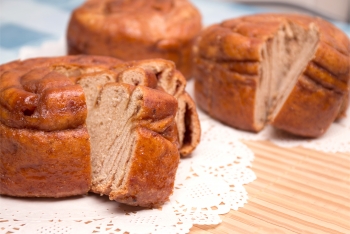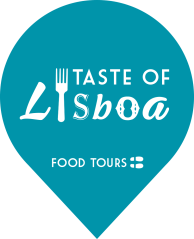Easter in Portugal: our hosts’ favorite typical foods

Closely linked to the ancient pagan feasts that celebrated the beginning of spring, Easter also symbolizes rebirth, reunion and renewal. From the impressive processions to the deep cleaning of homes, from fasting during Lent to the overflowing tables of Easter Sunday, this is a unique celebration in our country.
The role of food during Easter
With a strong connection to food, the Easter season begins on Ash Wednesday with a fast that lasts for 40 days, where the consumption of meat is avoided on Fridays. The fast ends on Easter Sunday to celebrate the Resurrection with a full house and tables laden with sweet and savory dishes traditionally served on this date. Differing from region to region, the menu is always abundant and tasty: lamb, piglet, “chanfana”, cod, “folares”, Portuguese sponge cake, festive cakes, “empanadilhas”, “queijadas”, “broas”, olive oil cakes, Easter almonds, chocolate eggs…
When it comes to tasting and eating, Taste of Lisbon’s team of hosts has to get their spoon and fork in there! For each one of the hosts, Easter has a special flavor, usually associated with the family traditions they experienced growing up. But there is always openness and appetite to create and taste new culinary traditions.
The Easter Bread that tastes like friendship
According to Filipa, Easter is synonymous with “folar” – both the traditional one, which she loves having for breakfast, toasted with butter, or the “folar” from Olhão, which she finds the most decadent of them all. The first one is considered Easter Bread: sweet and dry dough, with a light touch of cinnamon and fennel, garnished with boiled eggs still in their shell.
The Easter “folar” from Olhão consists of dough layered with butter, cinnamon and brown sugar, which in the oven turns into a caramel-type syrup, giving it its bright and moist appearance. Yum, we can definitely sense its deliciousness… but, did you know that the Easter “folar” symbolizes reconciliation and friendship? Exactly, so why not buy or make your own, and share it with your loved ones.
First salty, then sweet
For Miguel, who has roots in Trás-os-Montes on his mother’s side, sitting at the Easter table means enjoying one (or two) generous slices of a meat-filled “folar”: a unique dough that presents itself as a delicious combination between bread and brioche, generously stuffed with veal, chicken, pork, rabbit, sausage and ham, flavors that only intensify the wonderful dough that gives the “folar” its form.
And to finish on a sweet note, the almonds make their way to the table on Easter Sunday: filled with chocolate or covered with caramelized sugar, Miguel prefers the sugar almonds filled with liquor.
Roasted lamb is the king of the table
Madalena is another fan of the traditional “folar” as one of the must-have delicacies on her Easter table, competing side by side with the typical roasted lamb. A dish that can be seen on practically every Portuguese table on Easter Sunday is slow roasted lamb, preferably in a wood-fired oven, after several days marinating in wine and garlic, and served with roasted potatoes and rice.
Chocolates and almonds, please
Chocolate eggs and Easter almonds are Rosa‘s favorite treats. Although the first ones are not originally Portuguese, they have been linked to this festive season since the middle of the 19th century when exchanging and hunting for chocolate eggs became popular. Of all shapes and sizes, they are inescapable and kids believe they are gifts left by the Easter bunny. What’s most important is that they taste good, because what’s a party without chocolate?
Almonds are also a classic, and in Minho there was a tradition where girls gifted eggs to boys, hoping that they would gift them almonds in return. There are still some places in the country that continue the artisanal production of Easter almonds, such as in Alcobaça or Torre de Moncorvo, where almonds are hand-rolled in a sugary syrup during one week and the end result is a true work of lacy art. Delicacies that must be tasted by those who are a fan of these small delights.
Do you want to learn more about Portuguese Easter food traditions? Check it out:
Traditional Portuguese Easter recipes
Real people, real food. Come with us to where the locals go.
Signup for Taste of Lisboa’s next food & cultural experiences
Follow us for more at Instagram, Twitter e Youtube
